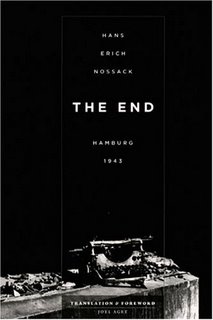Quotes from
War and Peace.
"But what is war? What is needed for success in warfare? What are the habits of the military? The aim of war is murder; the methods of war are spying, treachery, and their encouragement, the ruin of a countrys inhabitants, robbing them or stealing to provision the army, and fraud and falsehood termed military craft. The habits of the military class are the absence of freedom that is, discipline, idleness, ignorance, cruelty, debauchery and drunkeness. And in spite of all this it is the highest class, respected by every one. All the kings, excpet the Chinese, wear military uniforms, and he who kills the most people receives the highest rewards" (237 Book 2).
****************"A thought that had long since and often occured to him during his military activities -- the idea that there is not and cannot be any science of war, and that therefore there can be no such thing as a military genius -- now appeared to him an obvious truth. 'What theory and science is possible about a matter the conditions and circumstances of which are unknown and cannot be defined, especially when the strength of the acting forces cannot be ascertained? No one was or is able to foresee in what condition our enemy's armies will be in a day's time, and no one can gauge the force of this or that detachment. Sometimes -- when there is not a coward at the front to shout "We are cut off!" and start running, but a brave and jolly lad who shouts "Hurrah!" -- a detachment of five thousand is worth thirty thousand as at Schon Grabern, while at times fifty thousand run from eight thousand, as at Austerlitz. What science can there be in a matter in which, as in all practical matters, nothing can be defined and everything depends on innumerable conditions, the significance of which is determined at a particular moment which arrives no one knows when?" (56 book 2).
*****************
The flesh and war:
"As he crossed the dam Prince Andrew smelt the ooze and freshness of the pond. He longed to get into that water however dirty it might be, and he glanced round at the pool from whence came sounds of shrieks and laughter. The small, muddy, green pond had risen visibly more than a foot, flooding the dam, because it was full of the naked white bodies of soldiers with brick-red hands, necks and faces, who were splashing about in it. All this naked white human flesh, laughing and shrieking, floundering about in that dirty pool like carp stuffed in a watering can, and the suggestion of merriment in that floundering mass rendered it especially pathetic....
Everywhere on the bank, on the dam and in the pond, there was healthy, white, muscular flesh. The officer, Timokhin, with his little red nose, standing on the dam wiping himself with a towel, felt confused at seeing the prince, but made up his mind to address him nevertheless.
'It's very nice, your excellency! Wouldn't you like to?' said he.
'It's dirty,' replied Prince Andrew making a grimace.
'We'll clear it out for you in a minute,' said Timokhin, and, still undressed, ran off to clear the men out of the pond.
'The prince wants to bathe.'
'What prince, ours?' said many voices, and the men were in such haste to clear out that the prince could hardly stop them. He decided he would rather souse himself with water in the barn.
'Flesh, bodies, cannon-fodder!' he thought, and he looked at his own naked body and shuddered, not from cold but from a sence of disgust and horror he did not himself understand, aroused by the sight of that immense number of bodies splashing about in the dirty pond" (144, 145 Book 2).
***********************
This quote may not seem to have muh to do with war, but the description is Tolstoy's conception of the Russian people/sensibility, exemplified in the figure of the peasant-soldier Platon Karataev. I think it comments on Pelevin's Post-Soviet sensibility and the concept of collective feeling, particularly when it comes to language, as well as Virno's concpet of the general intellect:
"Sometimes Pierre, struck by the meaning of his words, would ask him to repeat them, but Platon could never recall what he had said a moment before, just as he could never repeat to Pierre the words of his favorite song:
Native, and
birch-tree, and
my heart i
s sickoccurred in it, but when spoken and not sung, no meaning could be gotten out of it. He did not, and could not, understand the meaning of words apart from their context. Every word and action of his was the manifestation of an activity unknown to him, which was his life. But his life, as he regarded it, had no meaning as a separate thing. It had meaning only as a part of a whole of which he was always conscious. His words and actions flowed from him as evenly, inevitably and spontaneously, as fragrance exhales from a flower.He could not understand the value or significance of any deed taken separately" (504, 505 Book 2).
Now go read
Mushin-sho for a great summary/explication of our recent class discussion on contingency, warfare, and the multitude.










